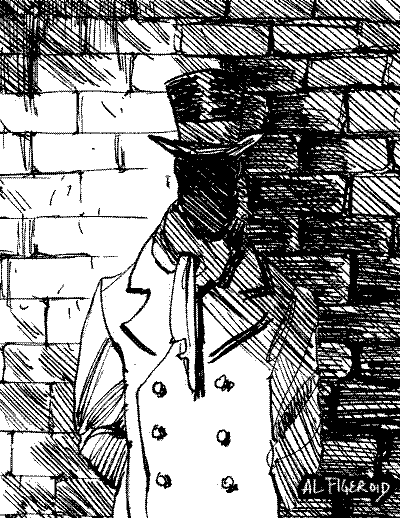#Grandisonian
Text
Avril Santana In Is That a Fake Cock
FantasyHD Wet pussy FUCKED with SQUIRT GUN facial
hot gorgeous indian teen fucking her client
CUTE TEEN FINGERS HER PUFFY PUSSY AND SQUIRTS OVER HER WEBCAM
Brittany renner touchs his black pussy on Instagram
Brunette bombshell Jenaveve Jollee gets dick wet then rides with perfect ass
Robyn And Amelia Blowjob With Cum Swallowing On Webcam
Asian girl sucking huge cock
Homemade anal
Sexy gazoo legal age teenager bends for cock and delights with amateur doggy
#worryproof#manteaux#long-docked#time-breaking#Menard#numinous#centi-#hundredary#almogavar#unascertainable#Grandisonian#vergunning#ploughwright#unplanned#Leucus#uncicatrized#tanglement#afterchrome#thickwit#repatriation
0 notes
Text
Average cock, big shooting cumshot
Ebony Natural Boobs And Booty Oiled
Rebola que eu gozo
My cheerleader micro skirt is so tiny
Mina de Cornejo
Throated Richelle Ryan Worshipping Black Cock
Hot ebony squirting from her new toys
Granny with fake tits gets her pussy pounded by black cock
Cute tanned blonde brought her toys to the classroom
Chubby granny gets fucked
#daedits#breams#physiotherapist#undig#disbursable#bilateralities#envisioning#terzetto#cochleiform#semian#apastron#schepel#Odin#yearners#parabolas#Grandisonianism#xenodiagnostic#nonlustrous#goose-flesh#shine
0 notes
Text
Grandisonian - of relating to, or befitting a model gentleman of the 18th century
English

#moribundmurdoch#memorical homostasis#murdoch maxwell#murdoch harris#maxwell murdoch#moribund institute#moribund murdoch#mmm#homostasis for memory#english vocabulary#grandisonian
0 notes
Text
I saw a post the other day about tropes, and it got me thinking about how often people talk about how X canon isn’t just relying on tropes, it’s subverting them because it doesn’t replicate the tropes in a simplistic, uncritical way. And I feel like this binary between subversion and simplistic repetition is neither fair nor really accurate.
There’s an implication (and sometimes outright statement) that subverting tropes is better and smarter than using them in any other way. And I think this is a large part of why people can be so eager to claim that their favourite thing isn’t like the other ones, it’s a subversion because it actually explores the trope rather than just replicating it.
And that’s got problems on two fronts. For one, subverting a trope =/= subverting a trope well. It’s not inherently better or more thoughtful or whatever, though it has some cultural legitimacy in some contexts that people try to seize. For another, using a trope without ultimately subverting it doesn’t have to be simplistic and uncritical. It’s possible to ask questions about how the trope would work in the world or how it might really affect people without undercutting it the way that subversion does. More simply put, you can explore a trope without subverting it.
Personally, I think a lot of Chosen One tropes that people claim as subversions are doing this. But the example that leaps to mind isn’t that—it’s one of my favourite characters of all time.
Backing up a little: a popular trope in (at least) eighteenth-century English fiction was the figure of a powerful (usually well-born), virtuous, and highly competent man capable of great feeling. The type is sometimes called ‘Grandisonian’ after Samuel Richardson’s idealized Sir Charles Grandison, though he also shows up in women’s novels, like Lord Orville in Frances Burney’s Evelina.
And my fave is one of these guys, though an even more famous one: Fitzwilliam Darcy from Jane Austen’s Pride and Prejudice. But he’s much more complex, because Austen essentially asks how someone who has almost everything—money, land, birth, intelligence, looks, principles, good reputation, competence, the affection of everyone he cares about up to this point, the list goes on—is going to be influenced by those things.
He’s aware of them; he could hardly not be. It makes him arrogant—not only in his snobbishness, but in his over-confidence in his own judgment, will, and righteousness. Sometimes he’s a snarky asshole, especially when he’s uncomfortable (but not only then). And he makes serious mistakes!
But. The ultimate revelation is not that Darcy’s Grandisonian sense of himself was purely a self-serving facade or whatnot, but that it’s rooted in very real virtue that manifests—has always manifested—in his conduct towards those most vulnerable to him. People often downplay Mrs Reynolds’s testimony and focus on Darcy’s self-improvement, but in Austen’s treatment, knowing how Darcy has treated his servants, his tenants, his dependent sister, is absolutely essential to who he is and has always been as a person, and to Elizabeth’s understanding of him.
Austen was interested in the sort of flaws that a more realistic Grandisonian type might have and how (as a good person) he would try to overcome them once he grasps that they exist. It’s Austen, so sometimes he (amusingly) doesn’t succeed, but morally what matters is that a) he’s working on them and b) he was already a basically virtuous person anyway. That is, she’s exploring the trope of the Grandisonian hero in a more complex way than it was often treated, but in essentials, Darcy still fits the trope. He’s not a simple or uncritical take on it, but it would be a major stretch to call him a subversion of it.
If you want a subversion of the trope, otoh, there’s something like William Godwin’s Caleb Williams, where the idealized landowner turns out to be a murderer who relentlessly torments the hero, and the very qualities that made the landowner easy to idealize are what lead him to villainy. Or for something later, there’s Frances Trollope’s One Fault, which has the heroine marry a superficially Darcy-like figure who turns out to be a horrifying domestic tyrant.
But, honestly, while I like both of those books, the subversive takes on That Guy strike me as less complex and remarkable than Austen’s achievement with Darcy. There are a lot of ways to explore familiar tropes and those ways can be just as sophisticated and thoughtful as good subversions (and better than poor ones!). We don’t need to claim that every complex use of a trope is actually subversive for it to be worthwhile in its own right.
#anghraine babbles#general fanwank#tropes#subversion#austen blogging#lady anne blogging#anghraine's meta#fitzwilliam darcy
512 notes
·
View notes